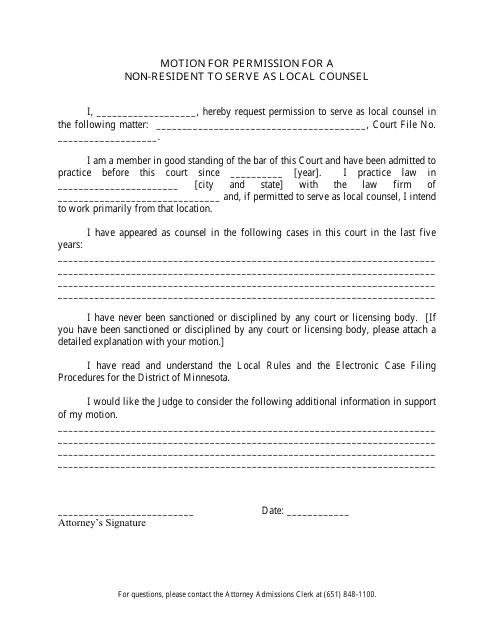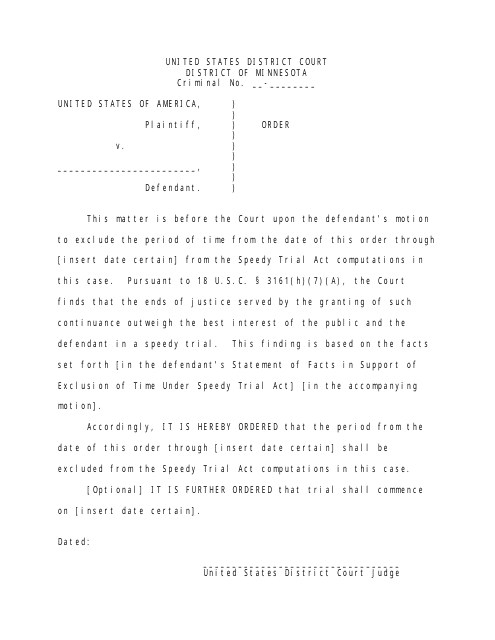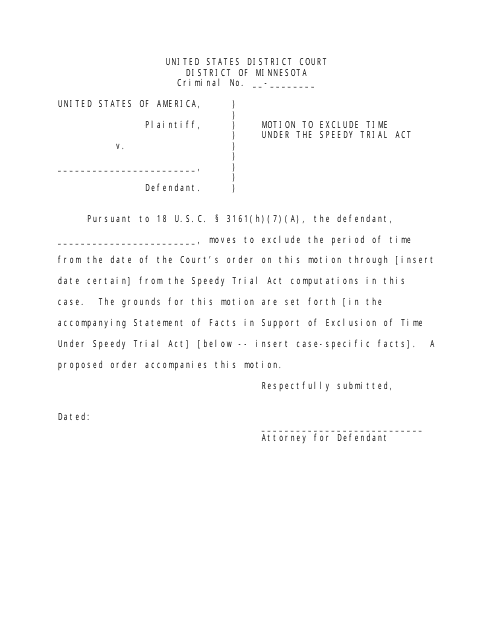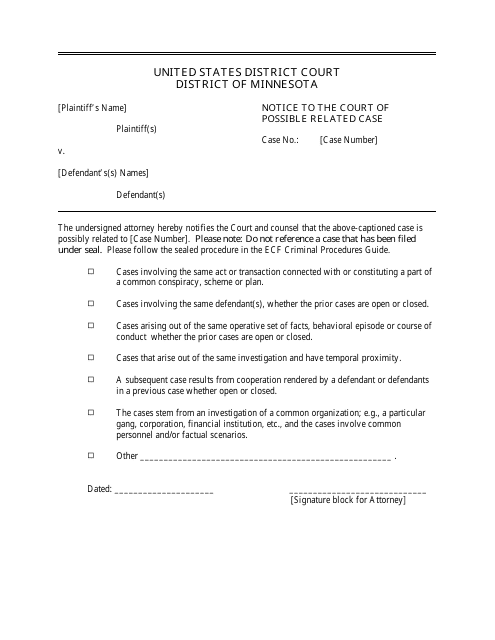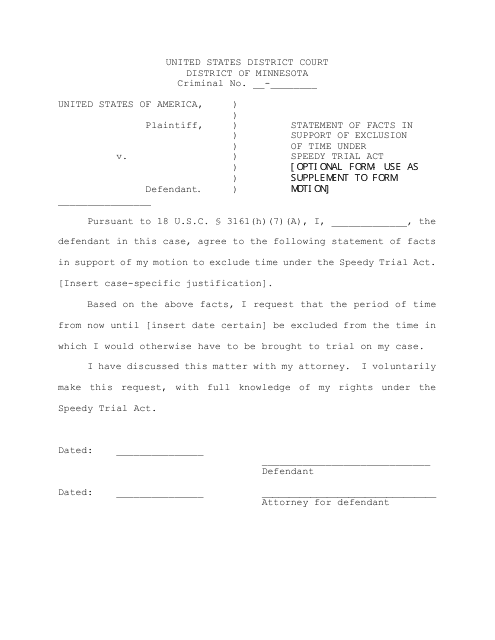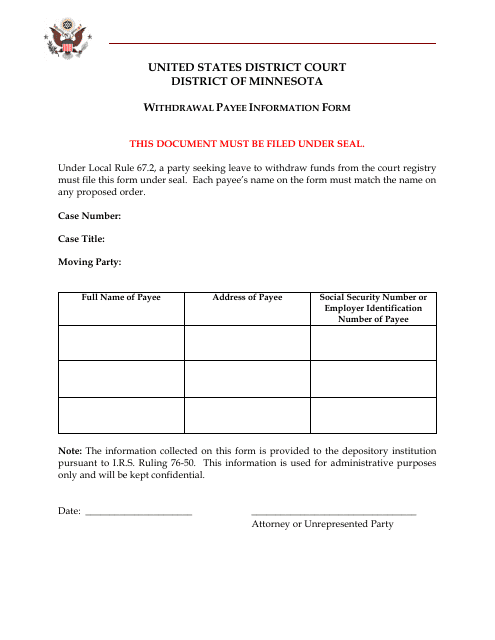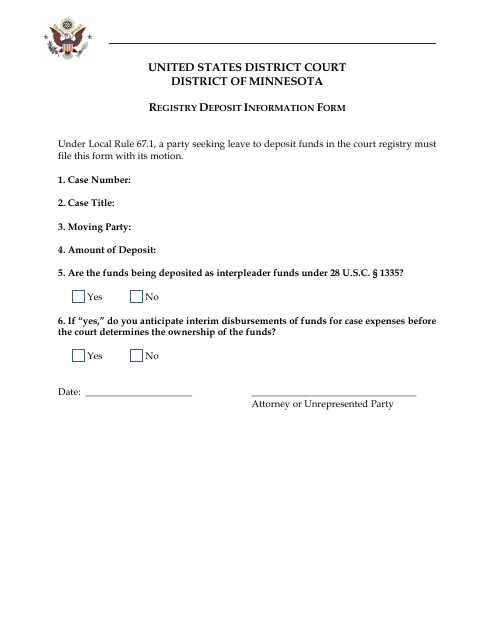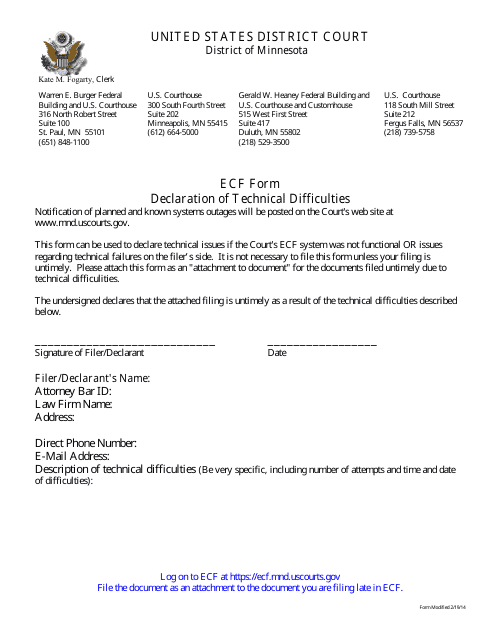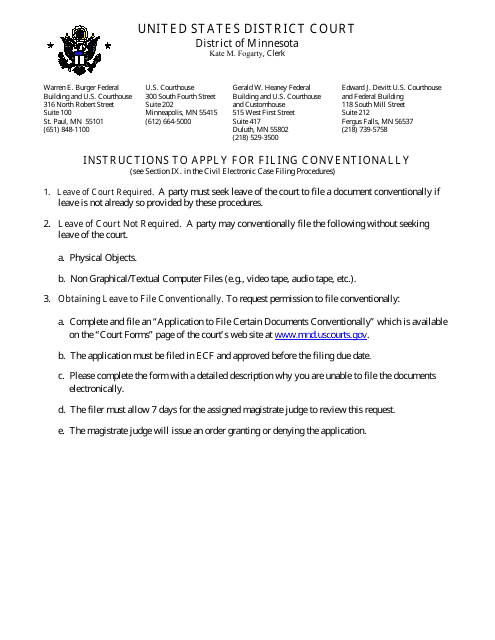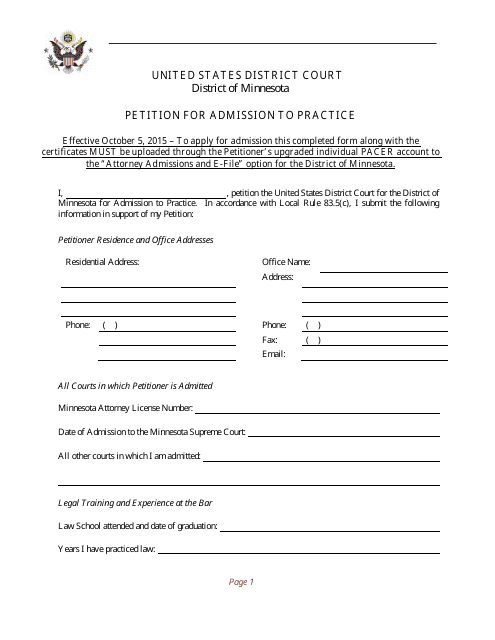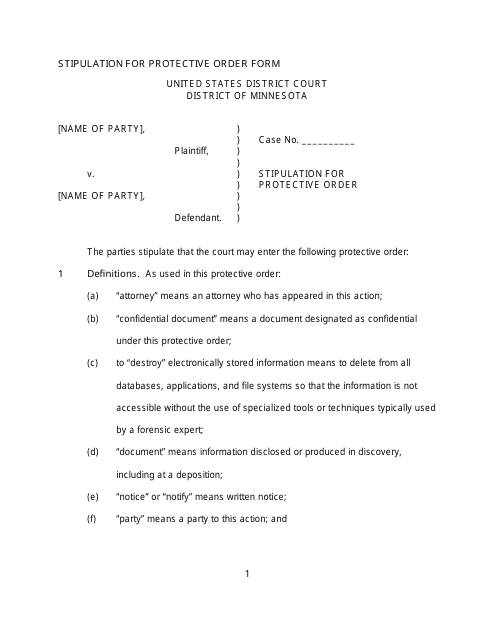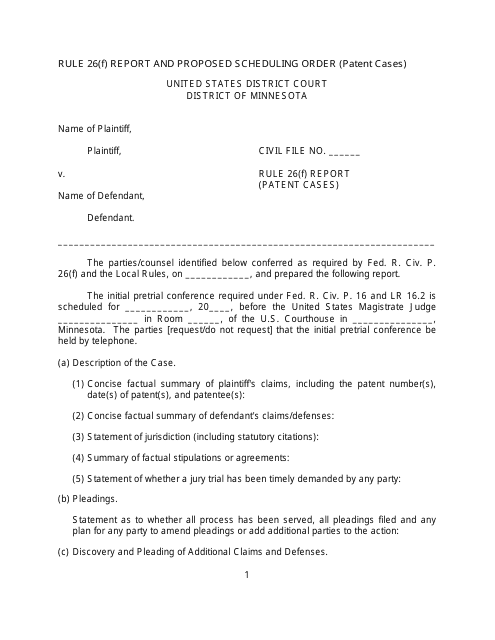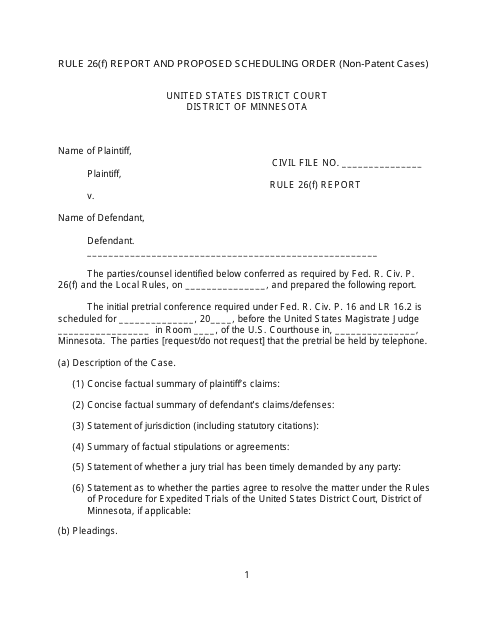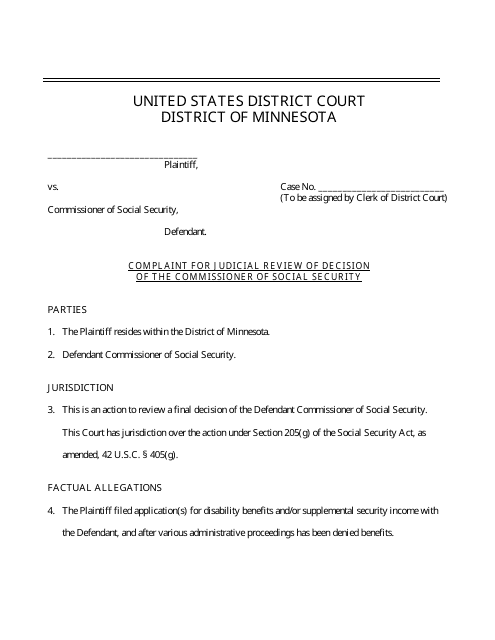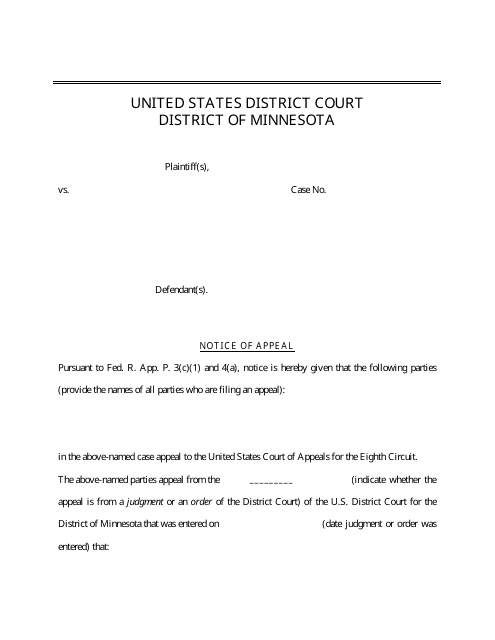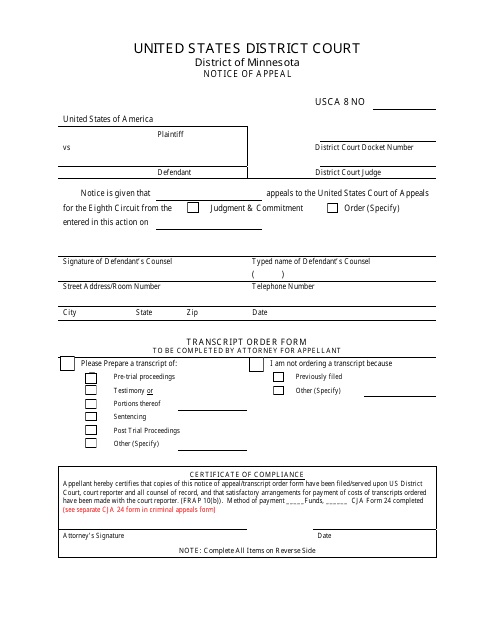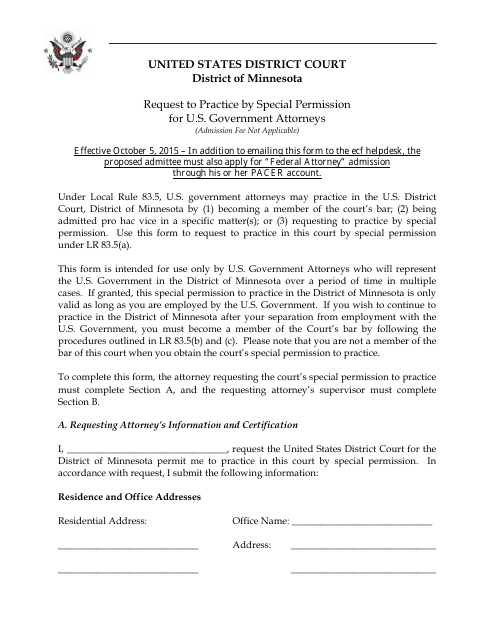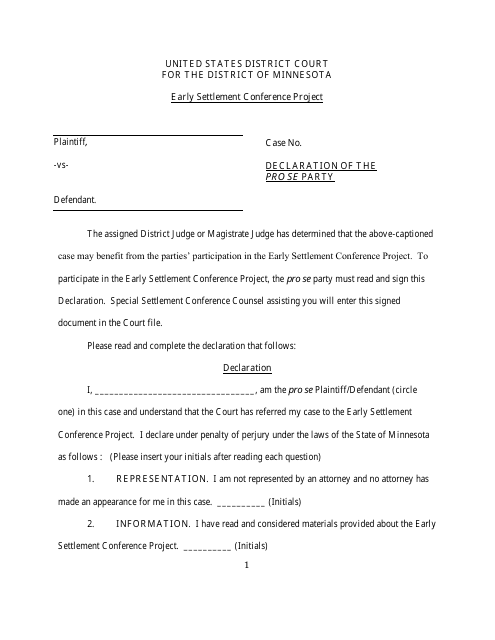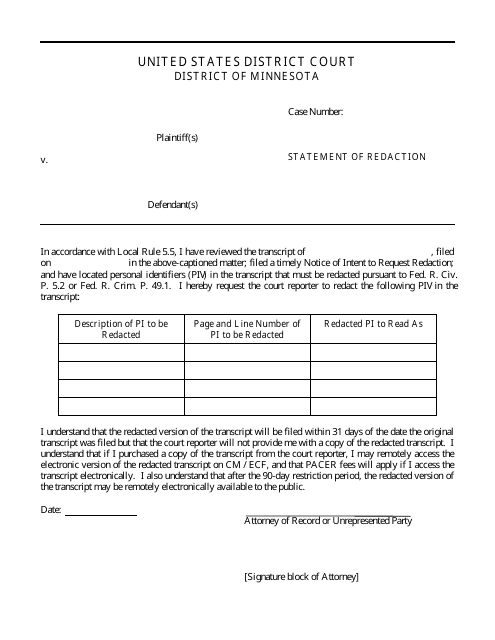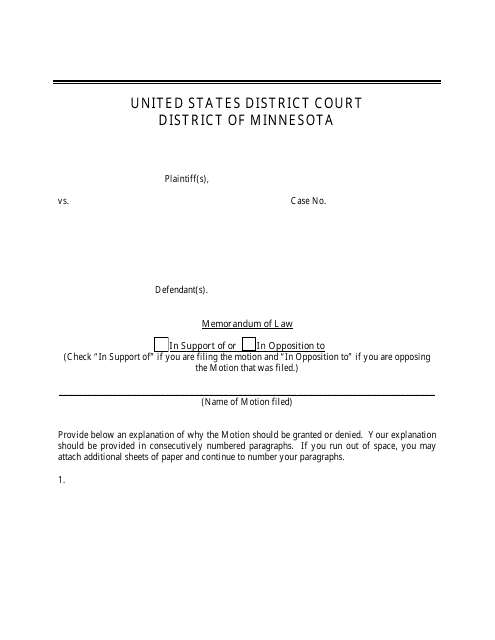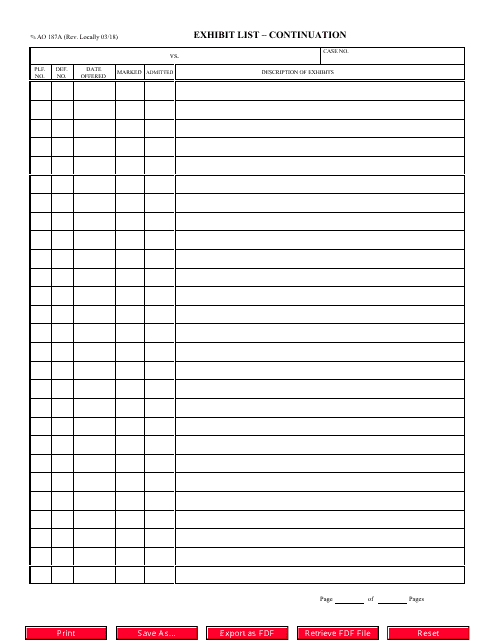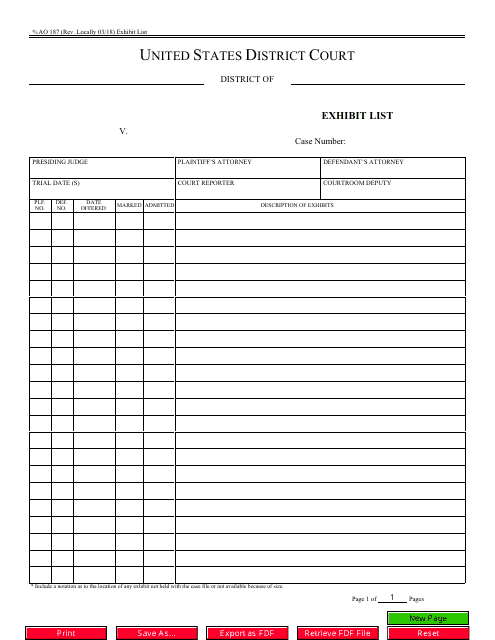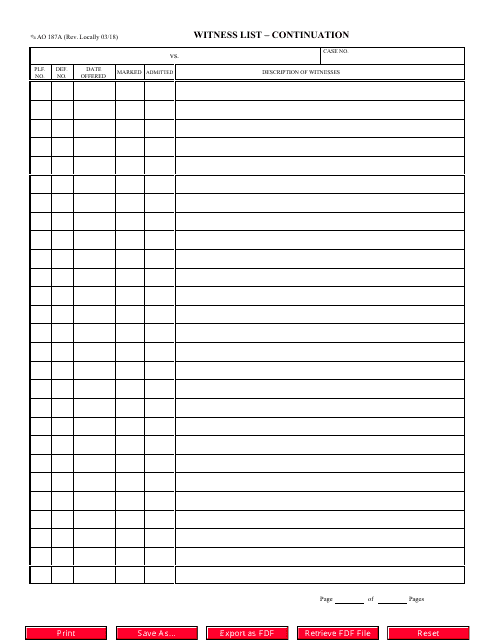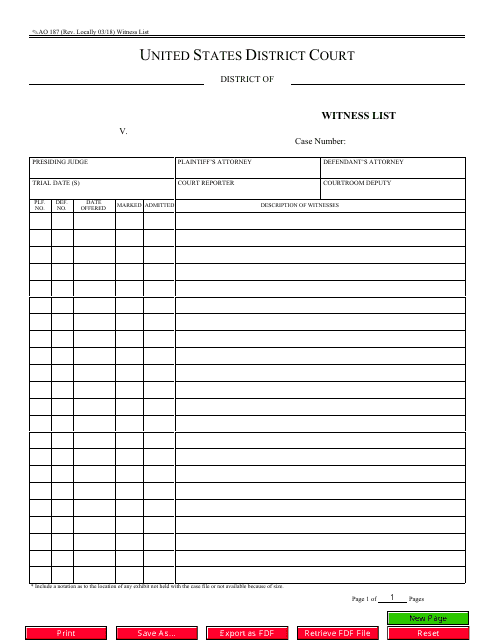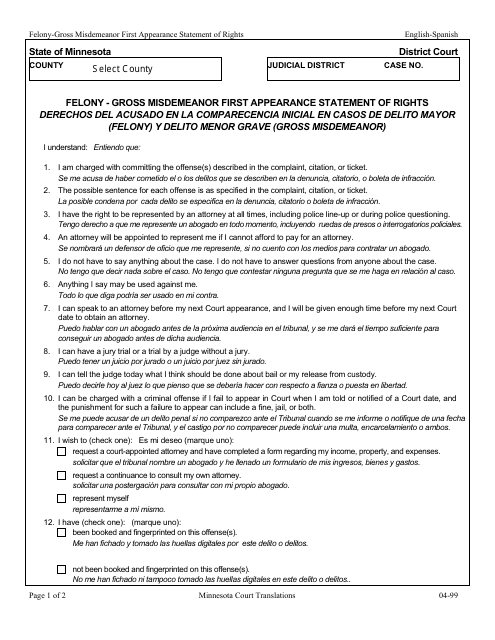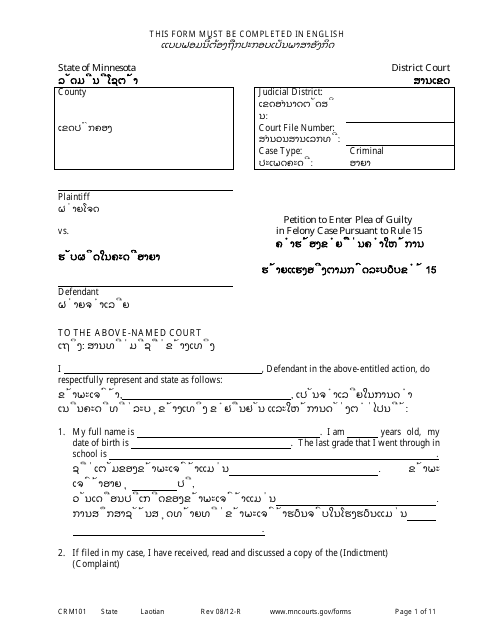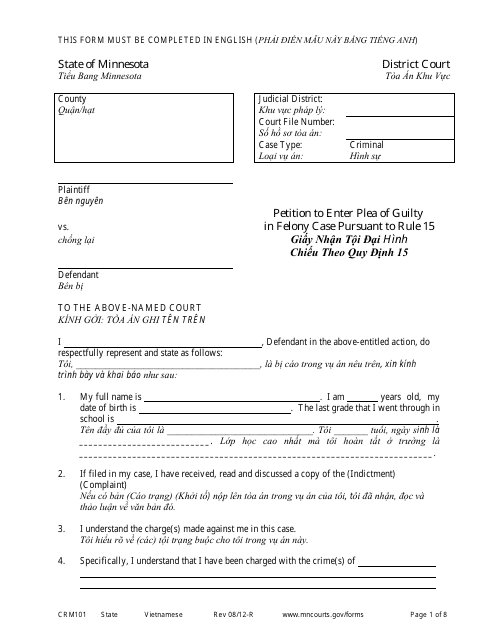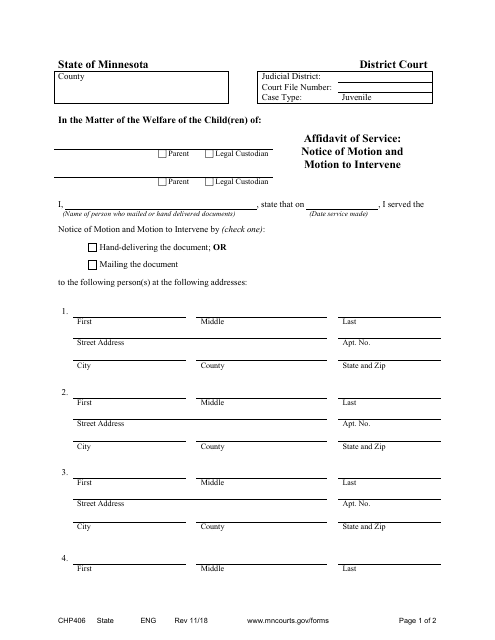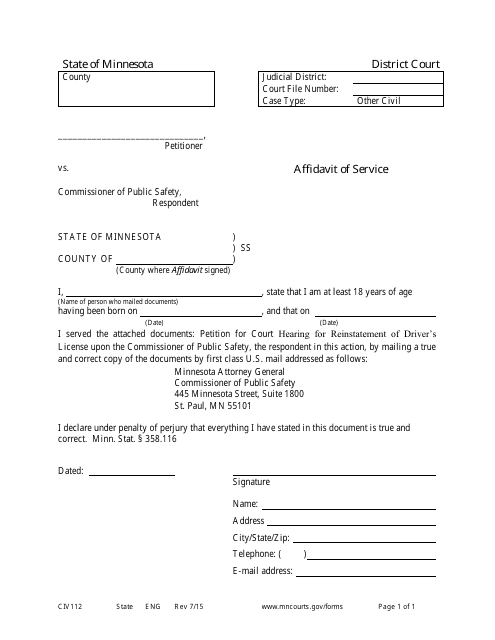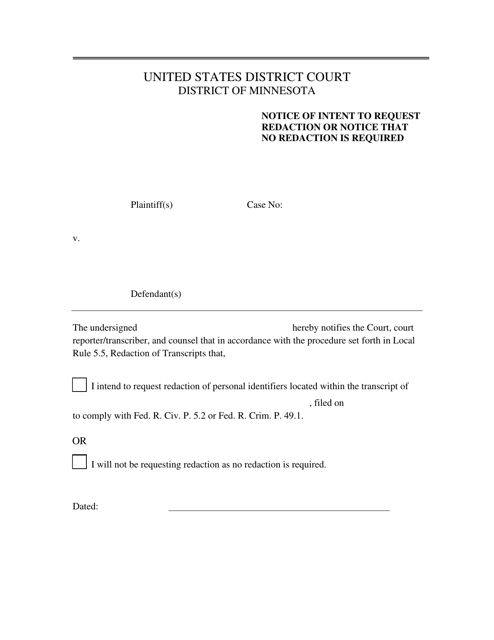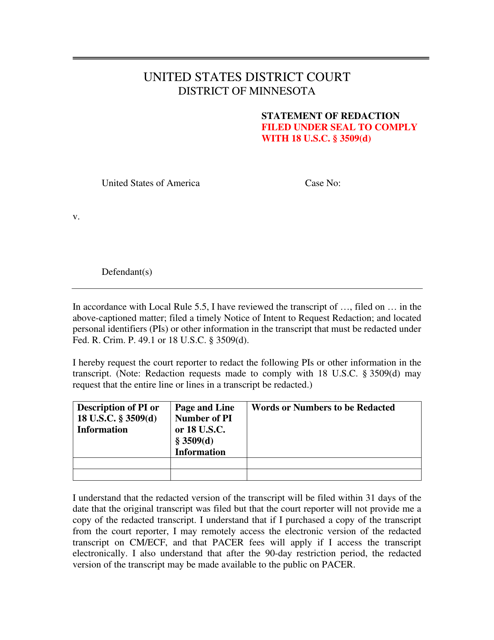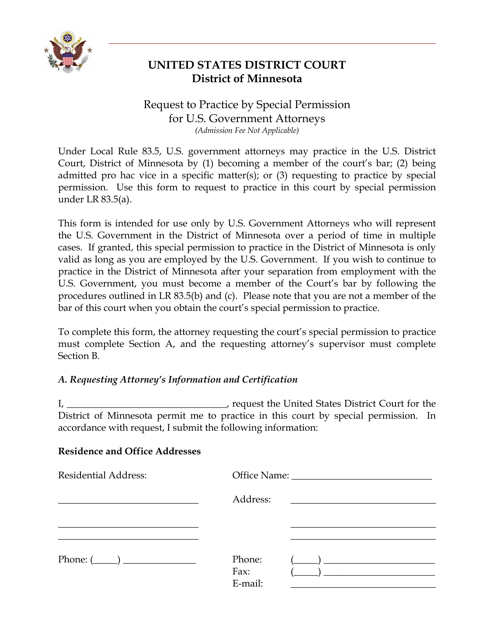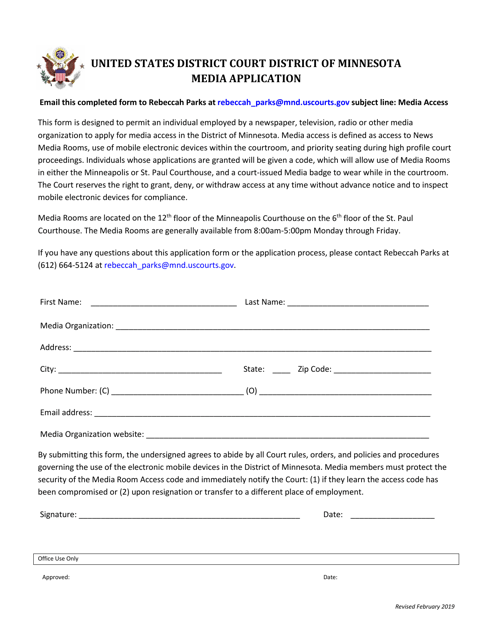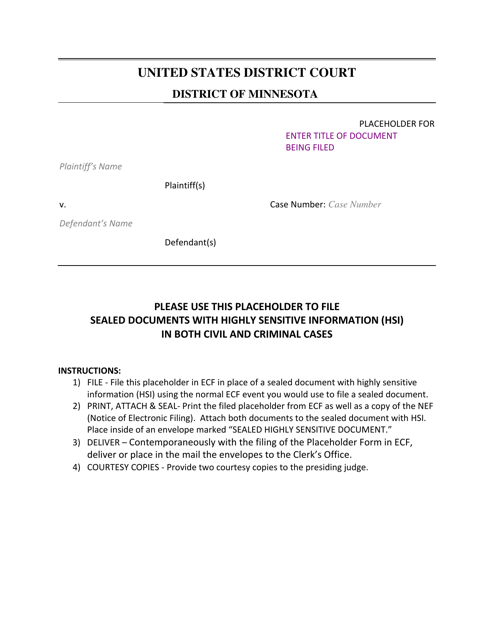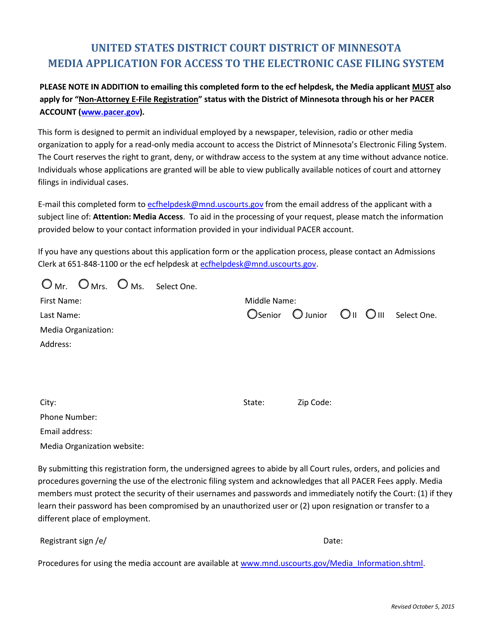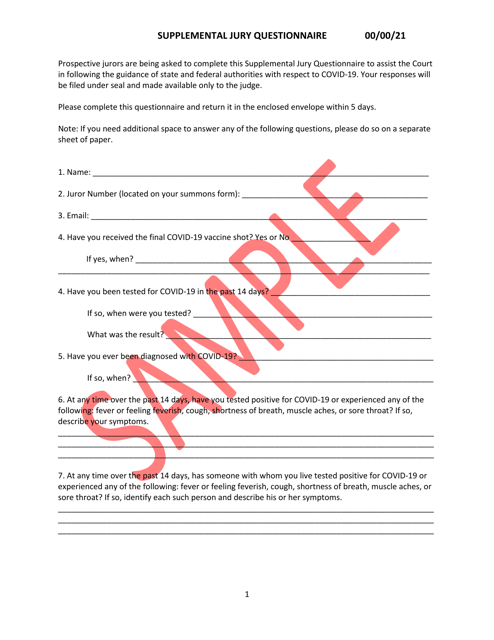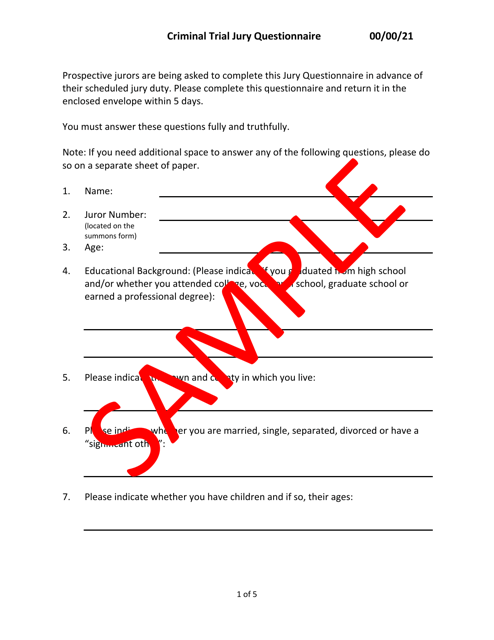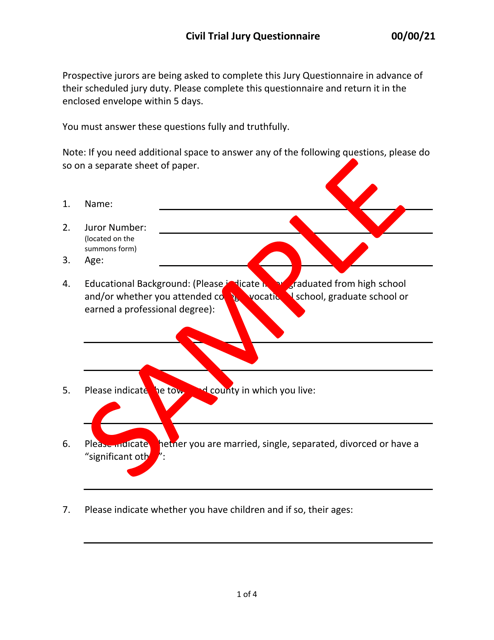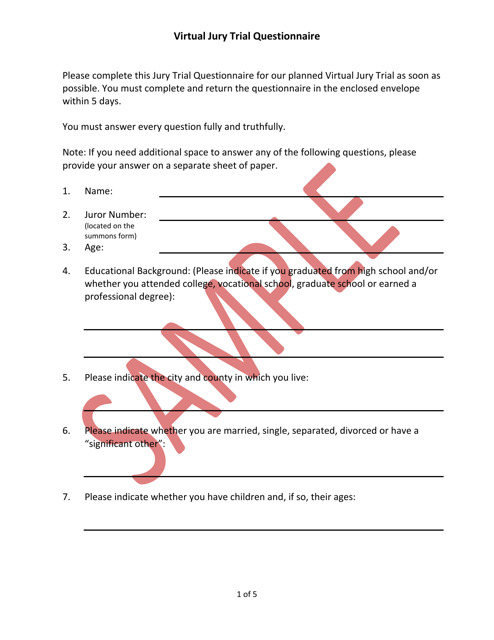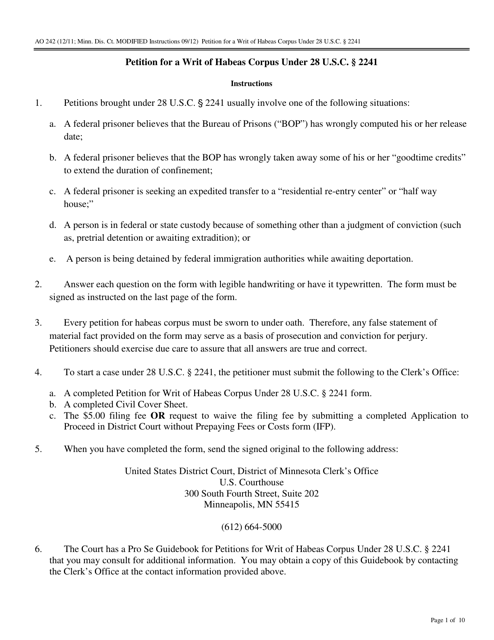United States District Court for the District of Minnesota Forms
The United States District Court for the District of Minnesota is a federal court that has jurisdiction over cases arising within the state of Minnesota. It handles both civil and criminal cases at the federal level. The court is responsible for interpreting and applying federal laws, resolving disputes between parties, and administering justice in accordance with the United States Constitution.
Documents:
48
This document is a motion for permission for a non-resident to serve as local counsel in the state of Minnesota. It allows an attorney who is not a resident of Minnesota to practice law in the state for a specific case.
This document is for ordering items or services from a business located in the state of Minnesota.
This document is a motion to exclude time under the Speedy Trial Act in the state of Minnesota. It is used to request the court to not count a certain period of time towards the speedy trial requirement for a criminal case.
This document notifies the court of the possibility of a related case in Minnesota.
This document provides a statement of facts that support the exclusion of time under the Speedy Trial Act in Minnesota.
This Form is used for providing payee information for withdrawals in the state of Minnesota.
This document is used to provide information about registry deposits in the state of Minnesota.
This document is a declaration of technical difficulties in the state of Minnesota. It is used to officially report and document any technical issues or problems that are affecting a particular system, service, or infrastructure in the state.
This document provides instructions for submitting certain documents conventionally in the state of Minnesota. It outlines the application process and requirements.
This document is a petition used in Minnesota to request admission to practice law.
This document is a Stipulation for Protective Order in the state of Minnesota. It is used to establish a court-approved agreement to protect certain information or documents from being disclosed or shared with others during a legal proceeding.
This document is used for filing a Rule 26(F) Report and Proposed Scheduling Order Form in patent cases in Minnesota.
This document is for filing a report and proposed scheduling order in non-patent cases in Minnesota.
This document is a complaint that someone in Minnesota can use to request a judicial review of a decision made by the Commissioner of Social Security. It is a legal form used to challenge the decision and seek a review from a court.
This document is used in Minnesota to formally file an appeal in a civil case.
This Form is used for filing an appeal in a criminal case in Minnesota.
This type of document is a request form used by U.S. government attorneys in Minnesota to apply for special permission to practice law.
This document is used for a pro se party in Minnesota to make a formal declaration in a legal proceeding. It allows individuals to represent themselves in court without an attorney.
This document is used to request the redaction or removal of certain information from public records in the state of Minnesota. It allows individuals to protect their personal privacy by limiting the disclosure of certain sensitive information.
This document is used to provide a written legal argument or analysis on a specific legal issue in the state of Minnesota. It is typically prepared by attorneys to support their clients' cases.
This form is used for creating a continuation of an exhibit list in Minnesota court proceedings.
This form is used for creating an exhibit list in the state of Minnesota. It helps to organize and identify all exhibits that will be used in a legal case.
This Form is used for adding additional witnesses to a witness list in a legal case in Minnesota.
This Form is used for providing a list of witnesses in a legal case in the state of Minnesota. It helps in organizing and documenting the individuals who may provide testimony or evidence in court proceedings.
This document provides information about the rights of the accused during the initial appearance in cases of felony and gross misdemeanor in Minnesota. It is available in both English and Spanish.
This form is used for filing a petition to enter a plea of guilty in a felony case in Minnesota. The form is available in both English and Lao languages.
This form is used for petitioning to enter a plea of guilty in a felony case in Minnesota. It is available in English and Vietnamese.
This form is used for filing an Affidavit of Service in Minnesota, specifically for the Notice of Motion and Motion to Intervene.
This form is used for filing an Affidavit of Service in the state of Minnesota.
This document is used to inform individuals that they intend to request redaction (removal of sensitive information) or to notify that no redaction is needed in Minnesota.
This document is a statement of redaction filed under seal in Minnesota to comply with 18 U.S.C. 3509(d).
This Form is used for requesting special permission to practice law in Minnesota for U.S. Government Attorneys.
This document is for applying for access to a media room in the state of Minnesota.
This document is used to file and secure highly sensitive documents in the state of Minnesota.
This document is used to apply for access to the Electronic Case Filing System in the state of Minnesota for media purposes.
This document is a sample of a supplemental jury questionnaire used in Minnesota. It is used to gather additional information from potential jurors to help in the jury selection process.
This document is a sample of a criminal trial jury questionnaire used in Minnesota. It is designed to gather information about potential jurors to ensure a fair and impartial trial.
This document for a Civil Trial Jury Questionnaire in Minnesota.
This document is a sample questionnaire for virtual jury trials in Minnesota. It is used to gather information from potential jurors participating in the trial remotely.
This Form is used for filing a petition for a writ of habeas corpus in the state of Minnesota, under the federal law 28 U.S.C. 2241. It allows individuals to challenge their unlawful detention or imprisonment.

